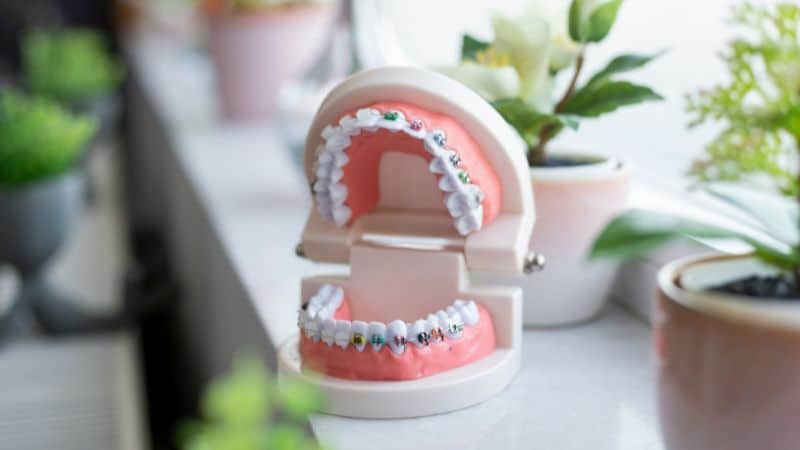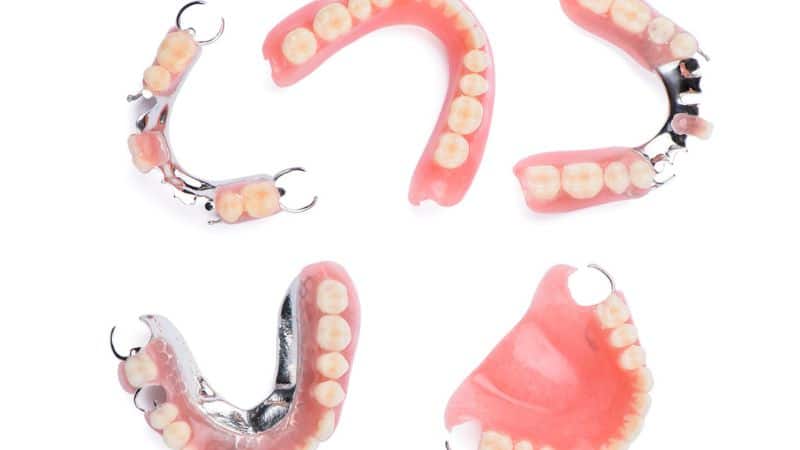
Everything You Need to Know About Dental Veneers
A confident, healthy smile makes a great first impression. Nothing should stop you from being able to smile with confidence. If your teeth are not as white as they used to be, or they are chipped, cracked or crooked, you may want to consider getting dental veneers.
In order to help you understand this cosmetic dentistry procedure from start to finish, we’ve put together a complete guide to getting teeth veneers. It includes all the information you need prior to moving forward.
What Are Dental Veneers?
Dental veneers are an excellent option if you want to improve your smile while protecting your teeth. They are thin shells that are typically composed of tooth-coloured porcelain or other composite materials. These shells are bonded over the front of your teeth to hide imperfections and improve their appearance. Veneers can be made to fit over a single tooth or cover multiple teeth.
Types of Dental Veneers
Teeth veneers can be made from two different types of materials and a dentist can help determine which veneer material is the best choice for you:
- Porcelain Veneers: Porcelain is the most popular type of material for veneers. The material is extremely durable, resists staining and better mimics the look and feel of natural teeth.
- Composite Resin Veneers: Composite resin material can be sculpted directly onto the natural tooth and the procedure can be completed within a day. While they are the more inexpensive option out of the two veneer materials, they are not as versatile or long-lasting as porcelain veneers.
When Should You Get Teeth Veneers?
Dental professionals may recommend veneers to patients for a number of different reasons. For instance, if your enamel is worn down, your teeth can become extremely sensitive to hot and cold sensations. Veneers can act as a protective cover for your teeth to reduce sensitivity and improve the look of your damaged teeth. Additionally, if you want to improve the shape, colour or alignment of your teeth, dental veneers can correct these issues and help you achieve a smile you can be proud of.
How Does the Dental Veneer Procedure Work?
The first step in getting dental veneers involves a consultation with your dentist. This will help both of you work out what you hope to achieve with the procedure and give you an opportunity to address any concerns you may have. Your dentist may then take photos or impressions of your natural teeth after taking an x-ray to identify any dental issues that should be taken care of first.
Depending on the type of veneers selected, the installation process might include removing some enamel to ensure the veneers will bond properly to your teeth.
Here are the detailed steps by steps for each veneer procedure so that you are well-informed.
Porcelain Veneers Procedure
The installation of porcelain veneers requires several important steps to obtain the final result: a beautiful restored smile. Here is a list of what you should expect.
- First, the dentist administers a local anesthetic (freezing) to make you more comfortable during the procedure.
- A thin layer of the enamel from your teeth is removed to make room for the new veneers.
- A mold of your teeth is made and used to make your porcelain veneers.
- The mold is then sent to an outside dental laboratory where the porcelain veneers will be made. This process usually takes 2-4 weeks.
- While waiting for your porcelain veneers, the dentist installs temporary veneers on your teeth to protect them.
- Once the porcelain veneers are ready, your next appointment consists of the installation of your new porcelain veneers. During this appointment, the dentist verifies the colour, shape, and fit of the veneers and adjusts them until they are perfect for you.
- Then, the dentist removes the temporary veneers, cleans your teeth, and applies a mild chemical to roughen their surface to make the porcelain veneers stick to your teeth better.
- The porcelain veneers are then bonded to your teeth one by one, using composite resin cement. A special light beam is used to harden the cement.
- The dentist performs the final cleaning and adjustments of your newly installed porcelain teeth veneers.
Composite Resin Veneers Procedure
Composite veneers are not only more affordable than porcelain veneers, but they also are easier and quicker to install. Here is what you should expect during your composite resin veneer procedure.
- First, the dentist applies a mild chemical to make the tooth surface a bit rough.
- A composite resin is selected to match the colour of your natural teeth.
- The composite resin is then applied by layers on your tooth.
- Each layer is hardened with a bright light.
- After the last layer is applied and hardened, the composite resin is polished and shaped to form a tooth.
Care After the Procedure
Your mouth and gums may be sore for a few days following the procedure, but this is completely normal and should pass as your mouth heals. Dental veneers like porcelain veneers can last 10-15 years, depending on how well you take care of them while composite resin veneers will last between 5 and 7 years.
To keep them looking like new, treat them as though they are your natural teeth and be consistent about your brushing and flossing. Also, visit your dentist at least twice a year for more thorough cleanings.
How Much Do Dental Veneers Cost?
The best way to learn more about the cost of dental veneers is to get a quote from a reputable dentist. Since many factors such as the condition of your teeth, the type of veneers chosen, and laboratory fees could influence the price of teeth veneers beware of overly attractive prices while shopping for dental veneers. They may not take into consideration some standard additional costs.
Individuals who have experienced the loss of their ability to feel good about their smile know the value of regaining that ability for the long-term. The cost of cosmetic dentistry to get teeth veneers becomes an expense they are readily willing to bear in order to get back their smile.
Making an Informed Decision
Dental veneers are a cosmetic device that alters the appearance of a person’s teeth. They help improve color, provide a natural tooth shape, reduce gaps, and hide chips and other minor damage to teeth.
Veneers can range in both cost and durability. Porcelain veneers are generally stronger and last longer, but they come with a much higher price tag. Resin-based composite veneers are more affordable but do not last as long and may break more easily.
Dental veneers are a long-term solution to cosmetic tooth problems. A person considering cosmetic dental work should discuss their options with a dentist.
Learn More About Our Dental Veneers Procedure
Are you still wondering if dental veneers are right for you? Located in the West Island of Montreal, Centre Dentaire Pierrefonds can help you improve your smile with its many cosmetic dentistry procedures, including teeth veneers.
Contact us for more information on all our cosmetic procedures. You could also make an appointment with one of our specialized dentists who will help you choose the solution that is right for you.




